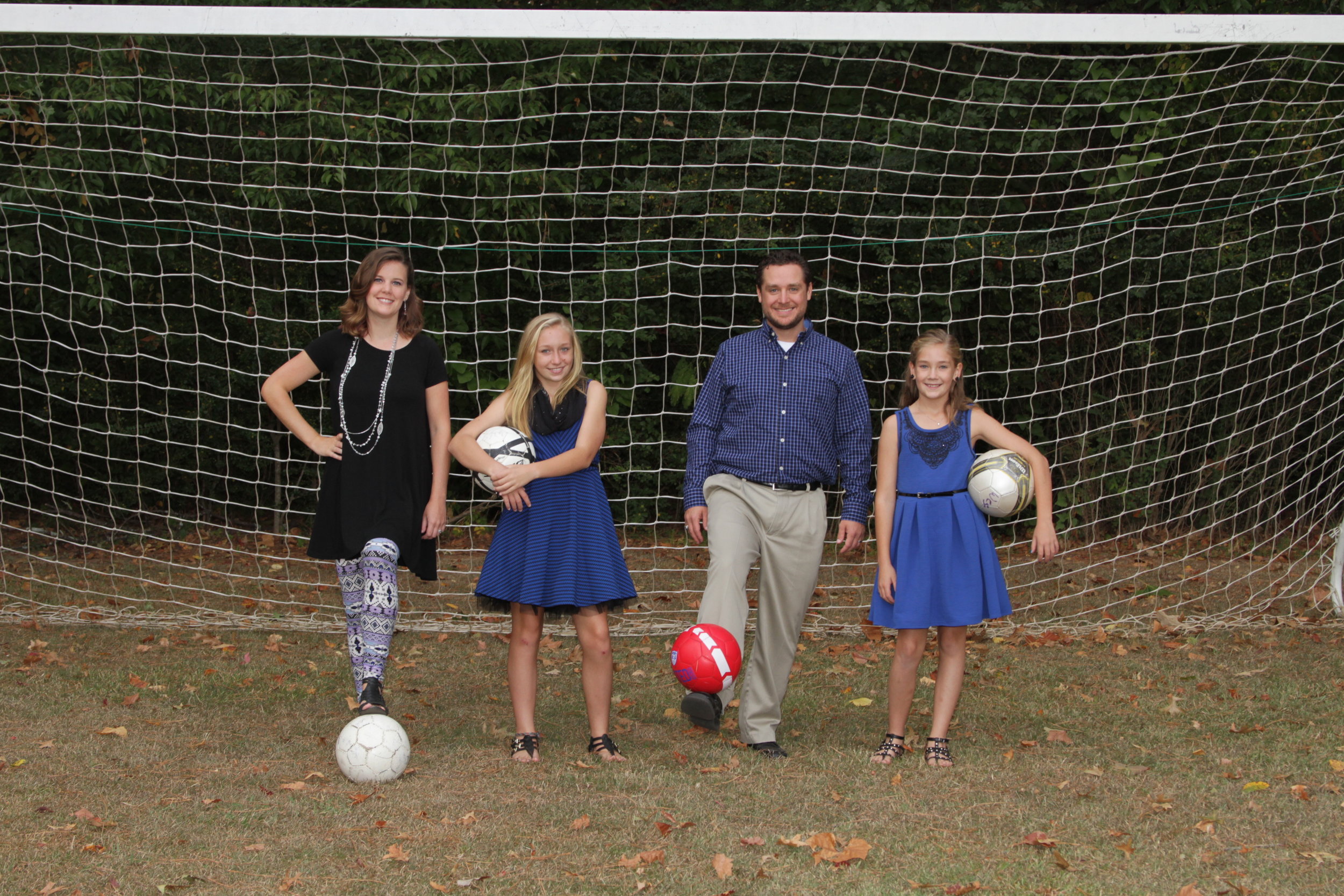Real Life Leading 74: What Example Are You Setting?
This picture is a couple years old, but it will always be one of my favorites!
My experience in being part of a blended family began back in the 1990s when my parents told us that they were getting a divorce. I remember having the conscious thought, “I’ve just become a statistic.” We were told that Dad was going to move out, we were going to live with Mom, and that it was not our fault so we didn’t need to blame ourselves. All of this was perfectly true, and that is how life was structured from that point forward. Dad picked us up for school each morning, so we got to see him almost every day, and we spent every other weekend at his house. He also attended all of our sporting events, school activities, etc, and so we were more blessed than many traditional families in terms of getting to spend lots of time with both parents. It wasn’t perfect, but it worked out well for us because Mom and Dad worked hard to keep things as ‘normal’ as possible.
Around a year later, Mom began dating a man named Brian. Though they never married, I still refer to Brian as my stepfather, and he remains a part of our lives even today (my children refer to him as ‘Papa Brian’). Brian was around a lot of the time, especially for big events and holidays, and he and Dad actually had a very friendly relationship, which struck me (as a teenager) as odd. I’ve always been a bit insecure, and so I wondered how it was possible for Dad to see Mom with someone else and not be angry about it. One day I got up the nerve to ask him, and his response was entirely mature and far beyond my teenage ability to grasp it (though I get it now).
Dressed up for a Daddy-Daughter Date Night last year: fun times!
Dad said, “Son, when your mom and I divorced, it no longer became my business who she spends her time with. As long as he is good to you and your siblings, I don’t have any problem with him.” Brian was (and still is) very good to us, and Dad never had any problem with him. In fact, we often spent Thanksgivings together: we kids, Mom, Dad, Brian, and even Brian’s dad (“Pops” to us) joined us sometimes. That became our new normal, and it is only when I reflect on it that I realize how abnormal it actually was. Mom, Dad, and Brian all played a huge role in providing us with a stable home life and making sure we were provided for.
What’s the point of all of this? To show the importance of parents setting a great example for their children, even when the situation isn’t ‘ideal’ or ‘perfect’. The importance of their example to us has been driven home in the course of the past decade, as all three of the children (all adults now) are involved in different types of blended situations. My older brother and his wife celebrated their 19th wedding anniversary earlier this year, and during that time they have fostered multiple children of a wide range of ages, some of whom come from very difficult backgrounds and some of whom have difficult parents. My first marriage ended in divorce almost a decade ago, and we have two daughters from that marriage. I remarried almost five years ago, as did my ex-wife, and we live less than two miles apart, working to raise our children well together. My younger sister is dating a man who has a child from a previous marriage. All of us, then are involved in non-traditional family situations, and all of us, without knowing it, were seeing how that could be done well when we were much younger. Our parents didn’t know it, but all three of them were setting an example that would prove crucial to their children.
This little girl is now old enough to begin driving in less than a month. Time flies, so let us make the most of it!
Whether you’re part of a blended family now or not, you’re setting an example for your children. Or, if you’re the child, you’re learning from the examples that you see before you and you’re deciding which parts of that example you want to reject or follow. Remember, be the adult you want your children to become, even when that is difficult. You never know who is watching. Finally, when you realize you have not always been a perfect example (because, let’s be honest, we all get it wrong sometimes), be willing to admit it. Go and do all you can to make things right, and then continue moving forward. Part of being a good example is showing our kids how to fail, how to seek forgiveness, and how to reconcile. Make these an active part of your parenting as well.
Action step: this week, write down a few ideas of what you want your example to look like, and then take steps to make it more of a reality.



